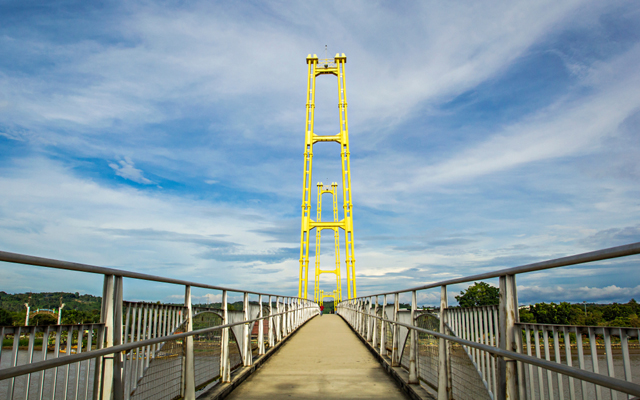East Kalimantan has a long way to go to become a viable new capital city that will attract both business and leisure traffic, while Jakarta is expected to shine much brighter as a dedicated economic hub.

Indonesian president Joko Widodo surprised many when he announced his plans to crown the little-known Kutai Kartanegara and North Penajam Paser regencies in East Kalimantan as the new capital of the country.
With the move, Indonesia’s centre of administration will exit Jakarta, leaving the current capital city to function as an economic and commercial hub.

The move will cost the Indonesian government a hefty 466 trillion rupiah (US$33 billion), which will also fund the construction of a 2,000-hectare administration complex that will house the state palace, ministries, house of representatives, Bank Indonesia, and a cultural park and botanical garden.
The National Development Planning Agency also revealed plans to erect a convention centre once the administration complex is complete. The convention centre will be part of a 40,000-hectare zone that will also boast a sports centre, museums, shopping malls, diplomatic compound and universities. Surrounding this zone will be a 200,000-hectare plot of land earmarked for a national park, an orangutan conservation centre and residential areas.
The president’s plans for the new capital city have inspired big dreams among some of Indonesia’s hospitality and business event leaders.
Hosea Andreas Runkat, chairperson of Indonesian Exhibition Companies Association (IECA), hopes that the Kutai Kartanegara and North Penajam Paser regencies will be home to a new MICE city which will contain South-east Asia’s largest convention centre, hotels and other facilities for business event groups. He has conveyed this dream in a proposal to the government.
Hosea believes that the future city will cater to a boom in inbound business travel and MICE events once the new capital city is established.
Local hotel companies are eager to leap in with property investments too.
Vivi Herlambang, director of business development, sales & marketing of Sahid Hotel & Resorts, said her company is scouting for ideal locations for a future hotel which will be able to accommodate business events. During her recent site visit to the two regencies, she observed the presence of only small hotels with rooms for just 20 to 30 guests.
Meanwhile, Santika Indonesia Hotel and Resorts also has plans for a new hotel in East Kalimantan, revealed Sudarsana, general manager of business development, but the company is keeping the location under wraps as the project is still under discussion.
However, for new hotel investments to materialise, hoteliers want to first see infrastructure improvements in the two regencies.
Vivi, who is already in talks with investors, also expects president Widodo to improve the local investment climate and remove potential red tape around business permits not only in East Kalimantan, but also the surrounding Central Kalimantan area and neighbouring provinces.
As leisure travel and MICE are two sides of the same coin for Pauline Suharno, managing director of Elok Tour, she has urged the government to improve East Kalimantan’s tourist appeal. She explained that business travellers and meeting attendees usually extend their work trips for pleasure, so East Kalimantan should be able to cater to this need.
She warned that the capital city status alone, without business and leisure infrastructure improvements, will not guarantee higher arrivals.
“Naypyitaw became the capital of Myanmar (in November 2005) but it is like a ghost town, and not attractive for tourists. Restaurants and hotels are quiet unless the country welcomes a state visit,” she said.
Despite the heightened attention placed on Indonesia’s future capital city, industry players continue to watch Jakarta with keen interest.
With the exit of administrative facilities, Hosea predicts that Jakarta will become less congested, less prone to political protests, and therefore, more welcoming for businesses.
Wisnu Budi Sulaeman, CEO of Pintamas Convex, also believes Jakarta will continue to be favoured for tradeshows because “almost all factories are there”.
As it would take five or 10 years for the two regencies to have adequate accessibility, facilities and amenities, Jakarta will continue to welcome most of the country’s inbound business events. After that, conferences and meetings in Greater Jakarta may decline, but the industry can shift their focus to exhibitions and sports events, Wisnu ventured.
Agreeing with Wisnu, I Ketut Salam, vice president director of Pacto Convex, said: “Business events do not have to be conducted in a capital city.”
He pointed to Rio de Janeiro and Sao Paulo as examples, saying that more business events are conducted there than Brasilia, the capital of Brazil.




















